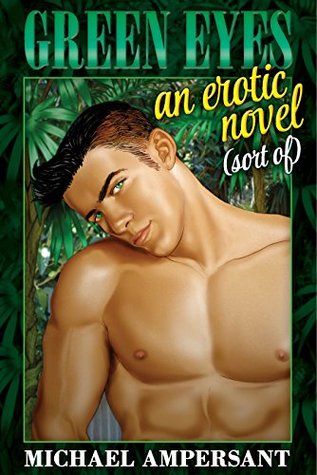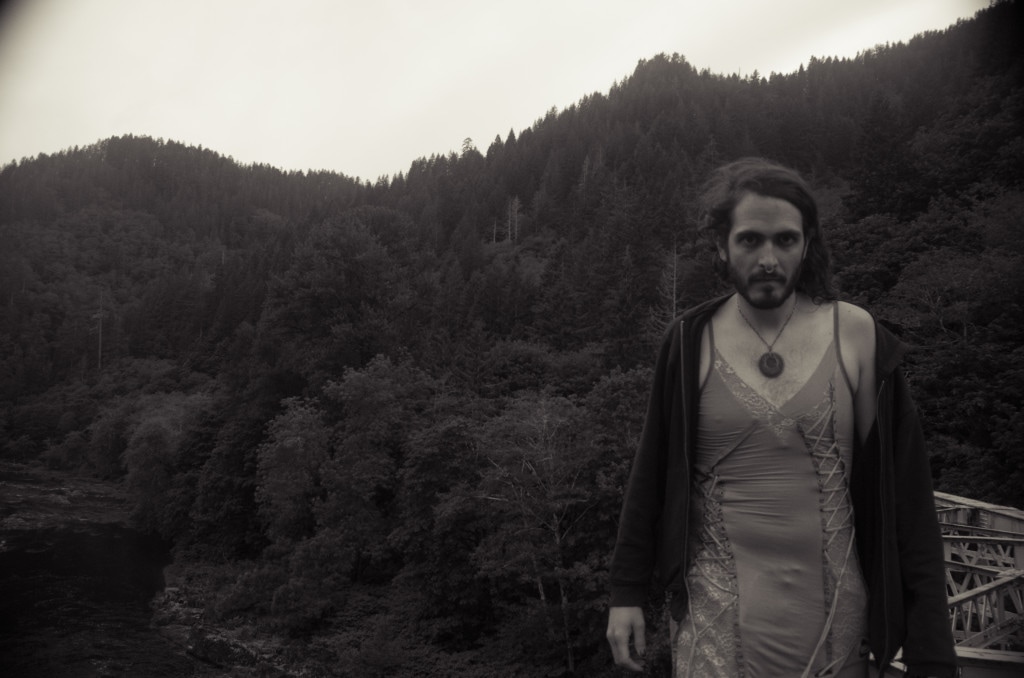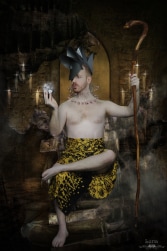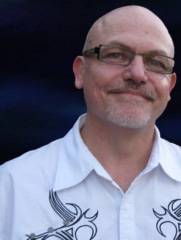|
Joining me today is the writer Michael Ampersant, whose name you’ve probably most recently heard as a finalist for the Lambda Literary Award this year with his erotica novel Green Eyes.
Michael Ampersant started writing gay erotica a few years ago. My first M/M novel “Green Eyes,” was published recently by Lust Spiel Books. His shorts appeared in outlets such as Temptation Magazine, The Bear Magazine, Gay Flash Fiction, Etherbooks, and LustSpiel Magazine. Find out more at morefreedomfries.blogspot.co.uk/
0 Comments
Delighted to have Michael Graves join me on t’blog today, as I was an enormous fan of his first collection of short stories, Dirty One, which I read secretively in snatched moments at work when I should have been otherwise engaged, and devoured in under a day. Highly recommended! (And for the record, I also second his recommendation in question 2…)
Michael Graves is the author of Dirty One, a collection of short stories. This book was a Lambda Literary Award Finalist and an American Library Association Honoree. His fiction and poetry has been featured in numerous literary publications, including Post Road, Pank, Velvet Mafia and Chelsea Station Magazine. Michael’s short work has also been featured in several anthologies, such as Cool Thing, The Lost Library: Gay Fiction Rediscovered and Eclectica Magazine’s Best Fiction, Volume One. His non-fiction reviews and interviews can be found in Lambda Book Report and Edge Boston. This fall, Michael released his debut novel, Parade. Bill Biss of Edge Boston says, “Michael Graves has a keen eye of the farce and facts of life. Parade is a page-turner of surprise that holds the attention and a skillfully crafted novel to be savored for its uniqueness.” Writer, Michael Carroll says, “Parade is one jigger Capote’s Answered Prayers, a jigger of Tennessee Williams’s story ‘Two on a Party,’ and a generous pour of Michael Graves’s tenderly transgressive yet never abrasive tonic of satire and sweetness, all of it going down bracingly, not bitter. It is a story of callow youth contrasted with the tough and ultimately ruefully true choices that adulthood tries to force us into. In the author’s hands the narrative of rite of passage and religious hypocrisy goes down unsettlingly, which is the mark of the mixer’s skillful hand.”
When I started this Q&A, naturally I put the thumbscrews on as many of the writers as I knew to get this whole thing started; today’s person is the first person to join me who I had not set out to ask. The reason I mention this is because when their name popped into my inbox, I did a little fanboy dance because I *adore* What Lies Beneath The Clocktower. If you haven’t read anything by Killjoy, please sort your life out immediately.
Margaret Killjoy is an author and editor who travels with no fixed home. Margaret’s most recent book is A Country of Ghosts, a utopian novel published by Combustion Books in 2014. They blog at www.birdsbeforethestorm.net and say things as @magpiekilljoy on Twitter.
I’ve been following Evan’s work since his Lambda-finalist anthology Ghosts In Gaslight, Monsters In Steam. His poetry and fiction merges horror and queer aesthetics (and if you want a taster of exactly what that can look out, check out his story in my anthology The Myriad Carnival). On top of all that, he has a book of essay/memoir, The Prep Diaries, out from Lethe Press with a cover design by some super-talented chap. (Yes, I mean me.)
Evan J. Peterson is a 2015 Clarion West writer, author of the speculative poetry chapbooks Skin Job and The Midnight Channel, and volume editor of the Lambda Literary Award finalist Ghosts in Gaslight, Monsters in Steam: Gay City 5. His fiction, nonfiction, and poetry have appeared in Weird Tales, The Stranger, The Queer South Anthology, Nightmare Magazine, Queers Destroy Horror, Drawn to Marvel: Poems from the Comic Books, Arcana: The Tarot Poetry Anthology, and Aim for the Head: An Anthology of Zombie Poetry. He was the founding Editor-in-Chief of Minor Arcana Press. His first full-length prose book, a safe sex memoir about Truvada as PrEP, will be published by Lethe Press in 2017. Evan teaches classes around Seattle, including SHRIEK: Women of Horror at Scarecrow Video. Check out evanjpeterson.com for more.
Continuing my theme of ‘Threesome alumni’, today’s Q&A is with Rob Rosen, whose ‘double-dicked aliens’ story in Threesome keeps scoring ‘WTF’ points from all the reviewers (which is exactly what I hoped for…)
Rob Rosen’s stories have appeared in too many anthologies for me to mention, and he’s a prolific editor. Find out far more than this bio could tell you over at www.therobrosen.com/
Mark Ward was on my Q&A a fortnight ago, but this week is the turn of his more-salacious alter-ego Chris Colby. Colby’s first story, Fancy Dress, appeared in my anthology Threesome, and has received some rather nice reviews since then, and I’m sure there’s more to come from the the Colby name…
Chris Colby is a pseudonym of Mark Ward who is from Dublin, Ireland. His short story, Fancy Dress, was featured in Threesome: Him, Him and Me (Lethe Press). He is currently working on his first novel. Under his real name, he writes poetry and has been featured in Assaracus, Tincture, The Good Men Project, HIV Here + Now, Off the Rocks, The Wild Ones, Emerge andGlitterwolf, for whom he was the 2015 Poet Laureate. He has recently completed his first chapbook, How to Live When Life Subtracts and is currently working on a novel-in-verse called Circumference. http://astintinyourspotlight.wordpress.com
Meet Mark Ward, my favourite handsome-gay-Irish-poet-playwright-cabaret-noise-musician. Read more from him in The Myriad Carnival (he says, self-promotingly) or in lots of other anthologies that are almost as good. (See below for details.)
Mark Ward is a poet from Dublin, Ireland. He was the 2015 Poet Laureate for Glitterwolf and his work has appeared in Assaracus, Tincture, The Good Men Project, HIV Here + Now, Off the Rocks, The Wild Ones, Emerge and the anthologies, Out of Sequence: The Sonnets Remixed, The Myriad Carnival and Not Just Another Pretty Face. He has recently completed his first chapbook, How to Live When Life Subtracts, and is currently working on a novel-in-verse called Circumference. As Chris Colby, he has been featured in the anthology, Threesome: Him, Him and Me and is currently working on his first novel.
http://astintinyourspotlight.wordpress.com Louis Flint Ceci is the editor of the recently-released anthology Not Just Another Pretty Face. I’ll leave it to him to explain it, as he’ll do it much better than I, but as it contains a whole bunch of writers I admire, I heartily recommend grabbing yourself a copy. LOUIS FLINT CECI1. Tell me about a book of yours that you’re particularly proud of… I am really excited about Not Just Another Pretty Face, the anthology I edited and published under Beautiful Dreamer Press, released April of this year. I don’t think I’ve never seen anything like it: an illustrated anthology in which the pictures came first, and each of the stories and poems in the collection was directly inspired by them. I dreamed of this book for over two years, ever since I first saw Tom Schmidt’s photographs. Tom, who goes by “Dot” for his photographic work, took hundreds of evocative photographs of go-go boys in atypical poses and dramatic settings and didn’t know what to do with them. I saw them and immediately thought, “There’s a story behind each of these.” So I talked to some authors at Saints and Sinners in New Orleans about doing an anthology based on the photos. They really liked the idea. We even took a field trip to The Corner Pocket for some, um, “research.” The results are even better than I had hoped. The stories, poems, essays, and one play are as different as the photos. Even the table of contents is unique, using a thumbnail of the picture as an index. 2. Recommend me a novel/short story by someone else that you think everyone should be reading… I look forward to reading more of each of the authors in Not Just Another Pretty Face, but there are two I especially want to keep my eye on. The first is ‘Nathan Burgoine. His stories about werewolves, demons, and vampires operating in the shadows of Ottawa have a psychological depth you don’t often find in fantasy and speculative fiction. His latest novel, Triad Blood, is just out from Bold Strokes Books. His story in my collection is a kind of spin-off from that: a minor character who appears only briefly in Triad Blood is the central character in “Bound,” and once again Burgoine explores the importance of being true to yourself even while assuming—and sometimes forcefully taking—your place in the community of your peers. The second author I want to read as much as I can is Erik Schuckers. This author is a prose poet. His imagery is dense yet always fluid, always in snyc with the pace of the story he’s telling. Read his “Duke’s Mound” in Issue 6 of The James Franco Review. Every paragraph contains a sentence that turns me green with writer’s envy. So far, I’ve only read his explorations in the realm of creative non-fiction. I would love to see what he could do with a novel. Louis Flint Ceci’s poetry has been published in Colorado North Review, and his short stories and essays in Diseased Pariah News. His autobiographical short story, “The Tree and the Cross,” appears in the anthology Queer and Catholic, edited by Amie M. Evans and Trebor Healey (Routledge, 2008). He is a former high school speech and English teacher, and a former college professor of Journalism and Mass Communications. An avid swimmer, he has competed in the two Gay Games and won three third place medals at the 2007 IGLA Tournoi International de Paris. He won the Gold Medal in the Poetic Justice poetry slam at the 2002 Gay Games in Sydney.
Last year I read The Glittering World and loved it. Doing what I do you get used to seeing the names of various queer lit writers going past you all day long, and quite a lot of that time you know about them but haven’t read them, so when you finally pick up one of their books, there’s always a slightly trepidatious sense about reading them. The Glittering World wasn’t like that for a simple reason: I’m a bit dense. I was sent The Glittering World by netgalley, read it and adored it. I then recommended it to Steve Berman of Lethe who (digitally) blinked at me and said, “Well yes, it’s Robert Levy. Of course it was great.” And he’s right. The Glittering World was one of my top ten reads of last year, and so I was delighted to see it announced as a Lambda finalist, and in the last fortnight announced as a Shirley Jackson nominee. (It’s against a Lethe title for the Shirley Jackson so of course I couldn’t possibly say who I’m rooting for *coughglitteringworldcough*).
Robert Levy is an author of stories, screenplays and plays whose work has been seen Off-Broadway. A Harvard graduate subsequently trained as a forensic psychologist, his first novel The Glittering World was published by Gallery/Simon & Schuster and is a finalist for the Lambda Literary Award, as well as a Shirley Jackson Award nominee. Shorter work has appeared in Shadows & Tall Trees, Black Static, and Autumn Cthulhu, among others. He is currently working on a television pilot as well as a new novel, and can be found in his native realm of Brooklyn and at TheRobertLevy.com.
The joy of queer lit in the internet age is how easy it is to discover and get to know authors. Kevin is second in my running because this blog series sprang from his own series he’s hosting on what exactly constitutes queer lit. I urge you to go check it out, as well as his own writing.
Kevin Klehr lives with his long-term partner in their humble apartment (affectionately named Sabrina), in Australia’s own ‘Emerald City,’ Sydney. From an early age Kevin had a passion for writing, jotting down stories and plays until it came time to confront puberty. After dealing with pimple creams and facial hair, Kevin didn’t pick up a pen again until he was in his thirties. His handwritten manuscript was being committed to paper when his social circumstances changed, giving him no time to write. Concerned, his partner, Warren, snuck the notebook out to a friend who in turn came back and demanded Kevin finish his novel. It wasn’t long before Kevin’s active imagination was let loose again. Kevin’s first novel, Drama Queens with Love Scenes, has been relaunched via Wilde City Press along with the sequel, Drama Queens with Adult Themes. Plus his Romance ebook, Nate and the New Yorker is out now.
|









 RSS Feed
RSS Feed